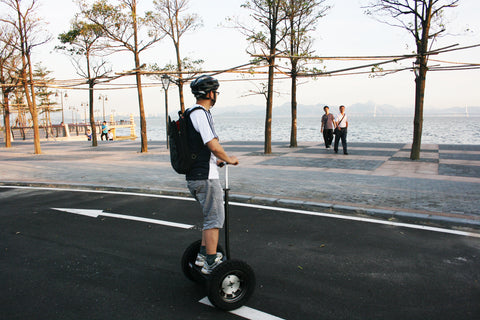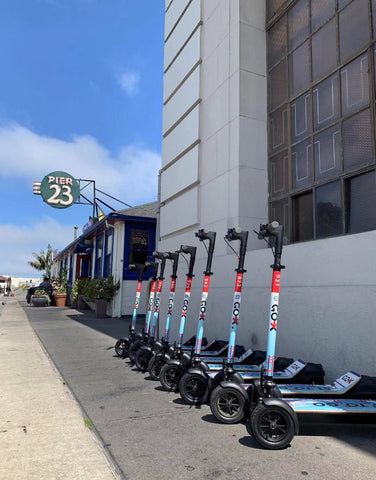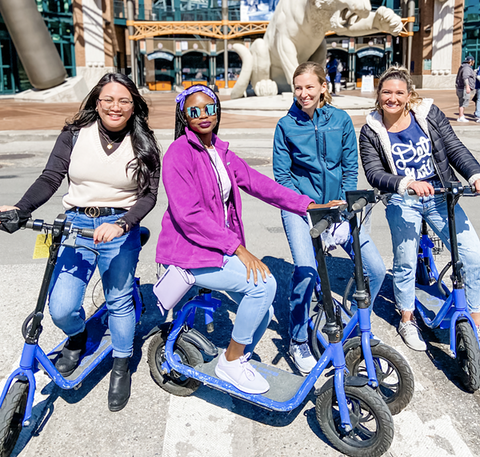You’ve seen them all over your city’s streets, and everyone who rides one looks absolutely thrilled. So, why haven’t you picked up your own folding electric scooter yet? Maybe you’re worried about whether e-scooters require a driver’s license, or a specialized license like motorcycles? Maybe you don’t have a driver’s license. Can you still ride an electric scooter, shared or otherwise?
As with most such questions, the answer is “it depends,” but in many cases it’s “yes!” This is actually one of the special benefits of micromobility as a mode of transportation, especially with regard to cities that seek to equitably provide transportation for all and optimize for effectively moving people through our world, instead of cars.
Whether or not you’ll need a driver’s license depends primarily on where you’ll be riding your scooter. Every state in the U.S. and many countries and regions in the world have found their own way to define the legal parameters for electric scooters, a form of transportation that didn’t exist as a viable option just a few short years ago. While e-scooter laws around the U.S. are becoming somewhat more standardized, there are still a number of differences from state to state.
First, we need to define what we mean by motorized electric scooter. The term can mean a number of things, from folding scooters like Eswing Scooter to two-wheeled seated scooters that are more moped-like and have more powerful motors and larger batteries. For the purposes of California law, a “motorized scooter” is defined as “any two-wheeled device that has handlebars, has a floorboard that is designed to be stood upon when riding, and is powered by an electric motor.” Other small motorized vehicles are classed as motorcycles, mopeds, or motorized bicycles, depending on their construction, weight, and motor size.

International Scooter Laws
Elsewhere in the world, laws can also vary widely.
The UK has only just begun trials for electric scooters on city streets. Riders can rent shared scooters but cannot yet ride private scooters on public roads. Electric scooters are classified as motor vehicles, and so all riders must have a valid driver’s license and be over the age of 16 to ride them.
Australia’s laws vary by state and territory. In both Queensland and Victoria, you will need a license to ride an electric scooter.
Scooter laws in Japan are strict: In addition to license plates, insurance, and registration, scooter riders must also have a valid motorcycle license.
Canada’s scooter laws vary by province, state, and city. In most provinces, you can ride an electric scooter without a license, though minimum age requirements apply, but some places do require a driver’s license.
Conclusion
The laws around electric scooter riding are constantly evolving. At least in the U.S. (California excepted), the answer to the question ”do you need a driver’s license to ride an electric scooter?” is, “no, you don’t.” But that answer can depend on how each state and locality defines an electric scooter, and it can change from one legislative session to the next. To be on the safe side, always check your local laws to be sure.
The positive news for prospective and existing Eswing riders is that over the first 3 years of the meteoric rise of folding electric scooters in the world, regulatory bodies seem to have been shifting toward regulating small forms of micromobility (like scooters) differently than larger vehicles like mopeds and motorcycles. Governments love how they aid to achieve equitable transportation goals (since many cannot afford a car, gas, parking, and auto insurance), as well as drastically reduce carbon footprints with vehicles that are human-sized and electric. And they’re easier to operate and straight up fun.


